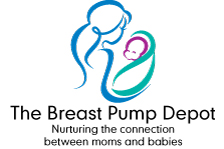Breastfeeding is beneficial for both moms and babies! For most infants, breastmilk is the best source of nutrition. Breastmilk is constantly changing to meet the needs of your baby.
Infants who have breastfed have a lower risk of:
- Asthma
- Obesity
- Type I diabetes
- Respiratory disease
- Ear infections
- Sudden infant death syndrome (SIDS)
- Gastrointestinal infections
- Necrotizing enterocolitis (NEC) for preterm infants.
Benefits to Moms include:
- Lower risk of breast cancer.
- Lower risk of ovarian cancer.
- Lower risk of Type 2 Diabetes.
- Lower risk of developing high blood pressure.

